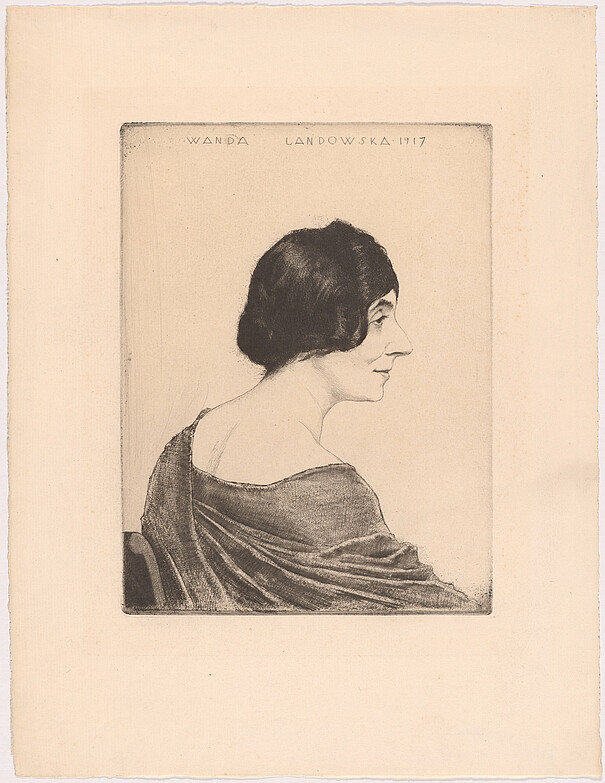
Arnold Schönberg
und Arnold Schönberg
The College of Music at the Berlin University of the Arts ranks as one of the largest educational music institutes in Europe, rich in content and quality. It dates back to the Royal (later State) Academy of Music, founded under the aegis of the violinist Joseph Joachim, a friend of Brahms, in 1869. From the date of its foundation under directors Joseph Joachim, Hermann Kretzschmar, Franz Schreker and Georg Schünemann, it has been one of the leading academies of music in the German-speaking countries. Composers such as Max Bruch, Engelbert Humperdinck and Paul Hindemith, performers such as Artur Schnabel, Wanda Landowska, Carl Flesch and Emanuel Feuermann, and academics such as Philipp Spitta, Curt Sachs, Erich Moritz von Hornbostel and Kurt Singer taught here. Prominent teachers later included the two directors Boris Blacher and Helmut Roloff, and the composer Dieter Schnebel.
In the 1920s, as well as the superior artistic quality of its staff, the Academy of Music developed considerable significance in teacher training: Leo Kestenberg, pupil of Ferruccio Busoni and Commissioner for Music at the Prussian Ministry of Culture, implemented a new type of artistic, academic and educational training for music teachers in all fields. Here the Berlin Academy of Music led the way throughout Germany.
In the course of its history, several noted institutes of learning in Berlin’s music life have been integrated into the Berlin State School of Music (from 1975 a part of the Berlin University of the Arts). In its diversity, this unique foundation really is a music university – not least, because interdisciplinary art forms and experimental fields are created in teamwork with other Colleges at the Berlin University of the Arts; something that is not possible elsewhere.
The College of Music represents a wide spectrum of today’s artistic, educational and academic culture. It offers distinctly organised courses of study for almost all music professions. These courses are offered as bachelor‘s and master‘s degrees. Students also have the opportunity to do a doctorate in musicology or music education.
In addition, the College of Music is entitled to confer a post-doctoral lecturing qualification (Habilitation).
The high percentage of foreign students from every continent mirrors the College’s international reputation.
A series of short portraits in the Faculty of Music newsletter provides vivid retrospectives on the history of the Faculty of Music and the university’s musical heritage. You can also find concert announcements in the newsletter, which you can subscribe to here
Portrait of the University's orchestra
Portrait of the Mendelssohn Foundation
The Musical Instrument Collection

und Arnold Schönberg

and Pál Hermann

and Wanda Landowska
![[Translate to English:] Foto: UdK Archiv [Translate to English:]](/fileadmin/_processed_/e/6/csm_Harfenistinnen_vor_Mikrophon__UdK-Archiv__1_-_F_70__6da3db7638.jpg)
and the Musical Instrument Collection

and Boris Blacher

Leo Kestenberg was a music reformer of the Weimar Republic and left a lasting impact on music education. He was also involved in the founding of the Aharon Shefi Conservatory – the current column is dedicated to him.
![[Translate to English:] Foto: Bibliothèque nationale de France [Translate to English:]](/fileadmin/_processed_/f/e/csm_Fischer-Dieskau_Bild__Wikip.__929fbaa139.jpg)
and Dietrich Fischer-Dieskau
![BPK 29.075 Foto: Max Liebermann: Bildnis von Richard Strauss; Staatliche Museen zu Berlin, Nationalgalerie / Gudrun Stenzel [Translate to English:]](/fileadmin/_processed_/6/9/csm_Max_Liebermann_Bildnis_Richard_Strauss_e817c0c26a.jpg)
and Richard Strauss
![[Translate to English:] Foto: Bundesarchiv [Translate to English:]](/fileadmin/_processed_/9/9/csm_Bundesarchiv_Bild_146-2005-0119__Kurt_Weill-1_05700a71a5.jpg)
and Kurt Weill
![[Translate to English:] Foto: Emil Stumpp [Translate to English:]](/fileadmin/_processed_/9/7/csm_Emil_Stumpp_Wilhelm_Kempff_e4335c253b.jpg)
Wilhelm Kempff (1895-1991) won the Mendelssohn Prize twice: the fact that he won in the piano category in 1917 is not surprising given his illustrious career as a pianist. More surprising was his success as a composer in 1915.
![[Translate to English:] Foto: Passfoto, Brasilien 1940 [Translate to English:]](/fileadmin/_processed_/a/a/csm_Frieda_Loebenstein_b6afb01a89.jpg)
Frieda Loebenstein is presented as a pioneer in piano pedagogy. In the 1920s, she played a key role in establishing an innovative seminar for music education at the University of Music, now the music faculty of the Berlin University of the Arts.

and Joseph Joachim
![[Translate to English:] Foto: Archiv der UdK Berlin [Translate to English:]](/fileadmin/_processed_/2/6/csm_Unbenannt-1_76a8f49d1e.png)
Learn more about the life and work of violinist and music educator Max Rostal.

The Berlin Conservatory of Music and the Philharmonic Orchestra worked closely together for a short time in the years of their establishment. The founding of the conservatory in 1869 was based on the idea of building an orchestra out of the school.

100 years ago, on July 27, 1924, Ferruccio Busoni, Italian composer, piano virtuoso, herald of the new in music and, in the last years of his life, director of a master class for composition at the Academy of Arts, died in Berlin.
![[Translate to English:] Foto: Eduard Magnus [Translate to English:]](/fileadmin/_processed_/1/0/csm_Felix_Mendelssohn_Bartholdy_65e628afee.jpg)
Felix Mendelssohn Bartholdy